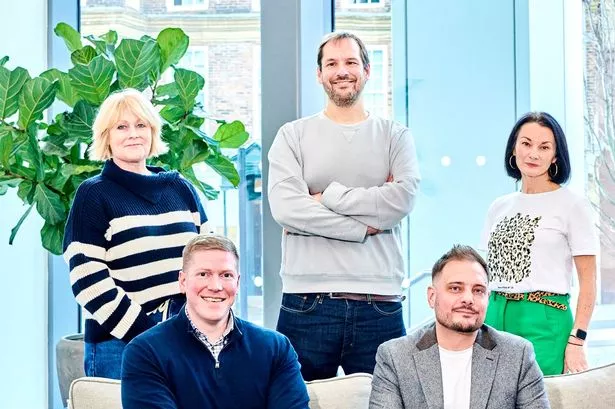
Saudi Arabia's fintech sector is thriving as the nation aims to compete globally with powerhouses like Silicon Valley and Singapore. The country's financial system is undergoing a digital transformation, making fintech one of the fastest expanding industries in the Saudi economy.
Significantly, local firms are at the forefront. In 2018, Saudi Arabia hosted only 10 local fintech firms employing 70 people, as reported by City AM.
Now, there are over 200 fintech companies, providing jobs for more than 5,000 Saudi nationals. The Kingdom also takes pride in its two home-grown unicorns innovative start-ups valued at over $1 billion namely Tamara and stc pay.
By 2030, the Saudi Central Bank (SAMA) aims to increase the number of local fintech firms to 525, creating 18,000 jobs for Saudi nationals and contributing SAR 13.3 billion ($3.5 billion) to the country's GDP.
These advancements paved the way for the Kingdom's 24 Fintech conference, a global fintech summit held in Riyadh from 3-5 September. Attendees included fintech entrepreneurs and thought leaders from finance, policy, technology, investment, and academia worldwide.
Hosted by the Saudi Central Bank, the Capital Markets Authority (CMA), and the Financial Sector Development Program (FSDP), and co-organised by Fintech Saudi and Tahaluf, the conference aimed not only to showcase Saudi fintech to the world but also to bring the global fintech scene to Saudi.
Annabelle Mander, Senior Vice President at Tahaluf, shared insights into the rationale for hosting a major fintech conference in Riyadh: "Fintech and finance are two vital parts of the Kingdom of Saudi Arabia's growth strategy...What we're doing with Tahaluf is bringing in the international expertise that is necessary to cultivate this ecosystem and drive development. That means bringing in expertise from places such as the UK, USA, Hong Kong and Singapore."
Highlighting the importance of the sectors, Mander emphasised: "Fintech and finance are two vital parts of the Kingdom of Saudi Arabia's growth strategy."
In discussing the impact of 24 Fintech on the transformation of the Saudi economy, Mander elaborated that the event is "designed to make sure that business gets done and that companies are able to make connections and investments."
The success of the conference materialised when, during its second day, 1957 Ventures backed by Riyad Bank, Saudi Arabia's third largest commercial bank revealed its establishment of a new VC mega-fund valued at SAR 800 million ($213 million), intended to bolster Saudi start-ups and stimulate a fintech revolution.
Emad Kashgari, CEO of 1957 Ventures, discussed the hurdles that fintech start-ups in Saudi Arabia encounter during his talk with Inside Saudi. He pinpointed talent acquisition as a critical issue, saying: "The main problem I think is access to talent, to quality talent. We need seasoned entrepreneurs to spearhead those ventures and launch them in the market and help them grow."
Kashgari also shared his optimistic outlook for the future, proclaiming: "Saudi will be the hub for financial technologies in the MENA region."
The Kingdom, he claims, leads the Middle East and North Africa in business transactions and market size in the area of fintech. Kashgari outlined his fund's lofty goals to generate not just economic growth but also to catalyse innovation and open up high-quality employment opportunities for Saudis by creating fintech unicorns.
Echoing Kashgaris sentiments, Mazen Pharaon, the Vice Chairman of 1957 Ventures, laid out plans for the recently established venture capital (VC) mega-fund, which is poised to funnel investments into an array of Saudi start-ups. Pharaon elucidated that their strategy aims at "creating innovators and disruptors in the fintech space".
Both executives recognised burgeoning areas within the Saudi fintech sector such as buy-now-pay-later schemes, microlending, and micro-retail, all witnessing substantial valuation surges and influxes of foreign capital.
One Saudi start-up demonstrating the potential for entrepreneurs in the Kingdom is Ejari, a firm straddling fintech and proptech that offers a 'rent now, pay later' service for residential properties. The company clinched the 24 Fintech Award at a recent conference, outperforming 300 other Saudi start-ups to secure the accolade.
In conversation with Inside Saudi, Yazeed Al-Shamsi, Co-Founder and CEO of Ejari, revealed that his company launched last year after securing $1 million from the Oryx Fund, a regional VC fund owned by British venture capital firm Salica Investments. Currently, the company has amassed over $30 million in demand for its service and operates in 16 cities across the Kingdom.
Al-Shamsi commended the significant support extended by the Saudi government to local start-ups via its National Technology Development Program (NTDP). "We received a tremendous amount of government support across the board from day one", he stated, referencing generous financial subsidies for office and salary expenses.
He commented: "I don't think globally in the world there's any kind of support anywhere that's anything close to the amount of support that the government is providing (in Saudi). When we started we had no money, they gave us a $50,000 dollar grant. That $50,000 dollars just snowballed into the million dollars that we raised last year, and the $14 million that we're going to announce very soon."
Delving into the issue of funding for emerging businesses within the Kingdom, Al-Shamsi expressed optimism about the untapped potential for international investment, particularly in the context of late-stage financing. He noted, "There's a huge funding gap when it comes to late-stage start-ups, so you see a lot of VC funds focus on the pre-seed, seed and Series A stages, but once you go to Series B and beyond there's a drop in the available capital because the amounts just get much bigger. The rounds to go 50, 100, 200 million dollars in size and not a lot of funds locally, or even regionally, have the capacity to fund those start-ups."
As Saudi entrepreneurs aim to expand their ventures, they are eager to engage with significant international stakeholders. Al-Shamsi remarked that the 24 Fintech event was "hands down the best event that we've attended in the past few years locally".
He further commented on the value of the summit, stating it enabled him and his peers to network with "a lot of relevant people for what we're trying to do, whether it's banks, payments companies, potential investors, international investors, local regulators."
Saudi Arabia has recently experienced a significant increase in venture capital investment for fintech, solidifying its status as the premier destination for VC investments in the Middle East and North Africa. A report by Magnitt, a top data analytics provider for venture capital in the Middle East, revealed that total funding for fintech in the Kingdom reached $62 million in the first half of 2024, marking a 360% rise in funding compared to the first half of 2023.









